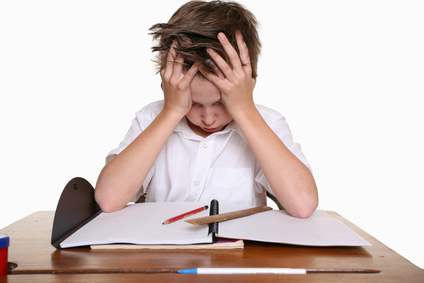Perhaps you or your child are experiencing symptoms of both ADHD (Attention Deficit Hyperactivity Disorder) and anxiety.
If so, it can be helpful to have a clear understanding of the symptoms and each and have some guidance in coping.
In order to understand ADHD, it is important to have a clear sense of the 3 main symptom groups:
1) Difficulty paying attention
2) Hyperactivity
3) Poor impulse control
- Now keep in mind that not everyone with ADHD has the same symptoms.
- In fact, boys may tend to be more hyperactive and girls may tend to be more inattentive. But, this is not always the case.
Kids and adults with ADHD may have difficulty completing tasks, getting organized, are easily distracted, and have difficulty sitting still and taking turns.
- Unfortunately, if you have ADHD your friends, family, and teachers may get annoyed at you because you may not follow through on tasks or you are distracted in conversations.
- You may be at risk for anxiety and depression if your ADHD is not managed and you are experiencing problems in school, work, and relationships.
- If you have ADHD you are probably aware that other people do not have the same struggles as you.
- This knowledge and awareness may make you feel really nervous and anxious. If you know you get easily distracted you probably know that you may not finish your test, get your assignments turned in, and people get mad at you if you interrupt them. This may make you super anxious.
People with anxiety often have difficulty making decisions, get easily distracted by their worries, fidget, and have difficulty concentrating. They too may have difficulty finishing tasks and problems with relationships as a result of these challenges.
The problems with ADHD and anxiety can make each condition more serious, so it’s important to know what is going on so that you can know what to do to turn things around.
If you can relate to what is described above it is important to improve your coping skills and decrease your stress.
You may be wondering where to begin?
If you already have a diagnosis, great!
If not, you can visit with a mental health professional and get some testing to see if you have true ADHD.
ADHD has a reputation of being over diagnosed and since inattention can occur with many conditions, such as anxiety, depression, learning disabilities, brain injuries, a thorough evaluation can help you know for sure what your inattention is related to.
Once you know you have both ADHD and Anxiety here are some ideas and tips of where to begin.
1) Talk to a psychologist who can help you understand symptoms and treatment for ADHD and anxiety.
2) Talk to a psychiatrist about medication and discuss benefits vs side effects. This can help improve attention and focus. Keep in mind the commonly prescribed stimulant medication for ADHD may not be the best choice if you also have a mood disorder. That is the reason it is especially important to see a psychiatrist rather than a family medicine or primary care doctor. I can help you find a psychiatrist, whom I can collaborate with for your care.
3) Improve social skills. This includes making eye contact, taking turns, understanding facial expressions and body language, and assertive communication. Since people with ADHD and anxiety often have difficulties in relationships, strengthening social skills can be highly beneficial.
4) Improve problem-solving and decision-making skills. Learn how to practice identifying a problem, come up with a list of solutions, and chose the best choice. This can help people better manage indecisiveness.
5) Work on identifying goals and values so you can improve your ability to execute and complete tasks.
6) Work on organizational and study skills. Practice making lists and prioritizing. By getting better at these coping skills, you can decrease the sources of anxiety and worry.
7) Get testing and school accommodations to make learning more fair.
8) Don’t be ashamed, know it is OK to get help, and work to overcome your challenges.
9) Learn to practice mindfulness so that you can be more self-aware of your body sensations and movements.
Cognitive Behavioral Therapy (CBT) is a proven method for addressing issues related to both ADHD and anxiety. Please contact me for more information by using my online scheduler or calling 303-747-4014







Follow me...